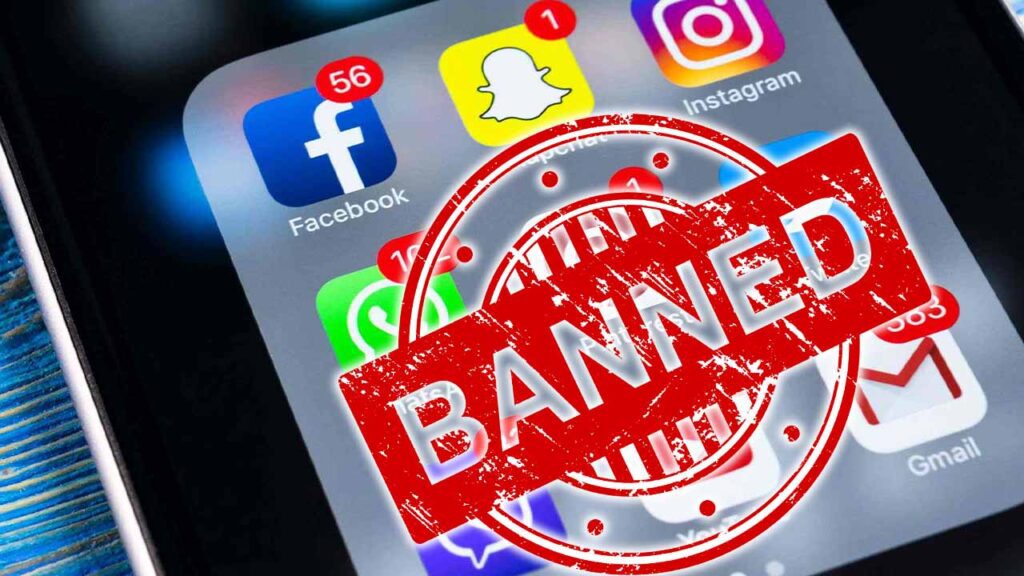In a bold move to protect its youngest citizens, Australia has enacted a world-first law banning children under 16 from accessing social media platforms such as Facebook, Instagram, TikTok, Snapchat, and Reddit. Passed overwhelmingly in the Senate, this legislation is part of a broader effort to combat the growing dangers posed by unregulated access to social media, including cyberbullying, mental health issues, and the exploitation of children by online predators.
Legislation Aims to Protect the Vulnerable
The law, which takes effect after a one-year grace period for compliance, requires platforms to implement robust age-verification systems. Companies that fail to enforce the ban face steep penalties of up to 50 million Australian dollars (approximately 33 million U.S. dollars). The legislation does not apply to services like YouTube or messaging apps, but it covers all platforms requiring user accounts that enable public interaction.
Prime Minister Anthony Albanese heralded the law as a crucial step in safeguarding Australia’s youth. “Social media companies have profited for too long at the expense of our children’s safety. This legislation sends a clear message: the well-being of our kids comes first,” Albanese said.
A Response to Rising Concerns
The law addresses mounting evidence of social media’s detrimental impact on children, including increasing rates of anxiety, depression, and cyberbullying among teens. However, its urgency is underscored by another growing concern: the use of social media by sex traffickers to target vulnerable minors.
Recent studies show that traffickers often pose as peers or influencers to lure children into exploitative situations. Platforms like TikTok, Snapchat, and Instagram have been identified as common tools for predators seeking to groom children or coordinate illicit activities. By restricting access for children under 16, the government aims to close one of the primary avenues predators use to exploit minors.
Child safety advocate Wayne Holdsworth, who lost his son to an online sextortion scam last year, praised the law. “This ban is about giving parents peace of mind and sending a strong message to predators: your access to our children stops here,” Holdsworth said.
Public Support and Mixed Reactions
Polls show overwhelming public support for the ban, with many parents expressing relief at the government’s proactive stance. “For too long, social media companies have prioritized profits over protection. This law is a win for families,” said Rachel Hughes, a mother of three.
However, the legislation has its critics. Privacy advocates have raised concerns about the potential overreach of mandatory age-verification systems, which may require users to submit government-issued identification or biometric data. Additionally, child rights groups caution that banning under-16s from social media could inadvertently isolate some children who rely on online communities for support.
“While this law addresses real dangers, it’s critical that we don’t create unintended consequences that harm the very children we aim to protect,” said Simon O’Connor, a representative for the Australian Children’s Alliance.
The Fight Against Online Exploitation
Australia’s decision to act comes amid global discussions about the role of social media in enabling child exploitation. A 2023 report by the Internet Watch Foundation revealed that grooming incidents on social platforms had surged by 50% over five years. Predators increasingly exploit features like private messaging, live-streaming, and disappearing content to contact minors and evade detection.
The law also reflects growing frustration with tech companies’ perceived lack of accountability. Despite promises to enhance safety measures, platforms have struggled to curb harmful content and predatory behavior. By imposing steep penalties, Australia hopes to force companies to prioritize child safety over engagement metrics.
Implications for the Global Stage
Australia’s social media ban is expected to have far-reaching implications, potentially inspiring other countries to adopt similar measures. While some see it as a necessary intervention to address the harms of unregulated online access, others worry about the logistical challenges of enforcing such policies.
“We’re watching Australia closely,” said U.S. Senator Josh Hawley, a vocal critic of Big Tech. “If this law proves effective, it could become a model for protecting kids from the dangers of the digital age.”
A New Era of Accountability
The new law represents a significant shift in how governments approach online safety. By placing the burden of responsibility squarely on tech companies, Australia has signaled its commitment to protecting children from the myriad harms posed by unrestricted access to social media.
As the legislation takes effect, the world will be watching to see how this bold experiment unfolds. Will it serve as a blueprint for global policy, or will it encounter the same challenges that have hindered other attempts to regulate Big Tech? One thing is certain: the debate over the role of social media in children’s lives is far from over.
Sources
- AP News: Australia Bans Social Media for Under-16s
- Reuters: New Law Targets Social Media Platforms Over Child Safety
- Internet Watch Foundation: Grooming and Exploitation Trends
- The Sun: Australia’s World-First Social Media Ban
- News.com.au: New Safeguards Against Child Exploitation Online



